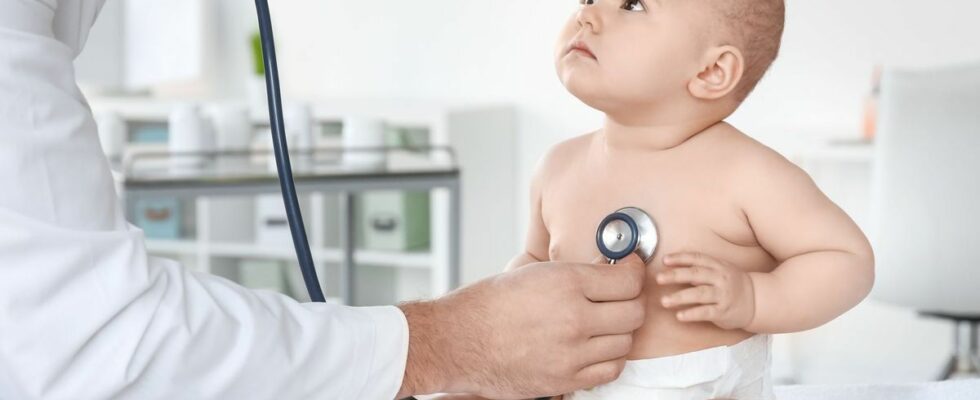Published on
Updated
Reading 2 min.
The government is taking up the subject of children’s health with the announcement, Thursday, May 23, of a plan that aims to be “ambitious”. It notably provides for the systematization of screening examinations from birth, the promised upgrade for speech therapists and even an increase in the number of caregivers.
Pediatrics is one of the medical sectors in crisis and to alleviate this situation, the government is announcing a “plan for child health” this Thursday, May 23. He presented his roadmap which includes 16 measures and 80 actions described as “concrete”.
What are the measures announced by the government?
According to the Ministers Delegate for Health, Frédéric Valletoux, and in charge of Children, Sarah El Haïry who present this plan, it is “the fruit of long work on the part of a committee appointed in November 2022 following the triple epidemic – Covid, flu and bronchiolitis – which had put pressure on pediatric systems“. Among the proposed measures, we therefore find:
- The creation of a “new compulsory examination at 6 years of age to detect possible neurodevelopmental, language, or optical disorders”;
- Direct and reimbursed access to speech therapists, without the need to present a prescription from a general practitioner or pediatrician;
- An increase in the number of speech therapists, with +10% of trained professionals from 2025, and +50% by 2030;
- An increase in the number of pediatricians, from the current 377 to 600;
- An increase in neonatal beds to reach the ratio of one bed per 1,000 births throughout France in 2027;
- The extension to community practitioners of the Nirsévimab (Beyfortus) treatment for bronchiolitis – previously reserved for maternity wards, from next year;
- Salary increases for private doctors or psychologists. The number of the latter will also have to increase in medico-psychological centers (CMP).
Mental health, another “priority” of the government
According to Frédéric Valletoux, this is a “real turning point in the approach to the health of young people”. A report issued at the end of the Pediatric Conference last April also mentioned the deterioration of several indicators in recent years around infant mortality or the mental health of young people.
This is why “child health is a priority” assure those around the ministers. But that’s not all. To prevent postnatal depression, an interview carried out after childbirth will be systematized. “Respite” solutions, such as emergency reception centers or supportive daycare centers, may be offered to prevent parental burnout.
Better understand the occurrence of pediatric cancers
Finally, the government also wishes to create a specialty in advanced practice in “child health” for nurses for a first start of schooling in September 2027 at the latest. And to contribute to research and improve knowledge around child health, a large prenatal pediatric cohort, comprising 200,000 families enrolled over four years, will be launched.
It will provide a better understanding of the environmental and psychosocial determinants of the occurrence of pediatric pathologies, particularly cancers. To finance all of these measures, the government is planning an envelope of around 300 million euros per year by 2030.
